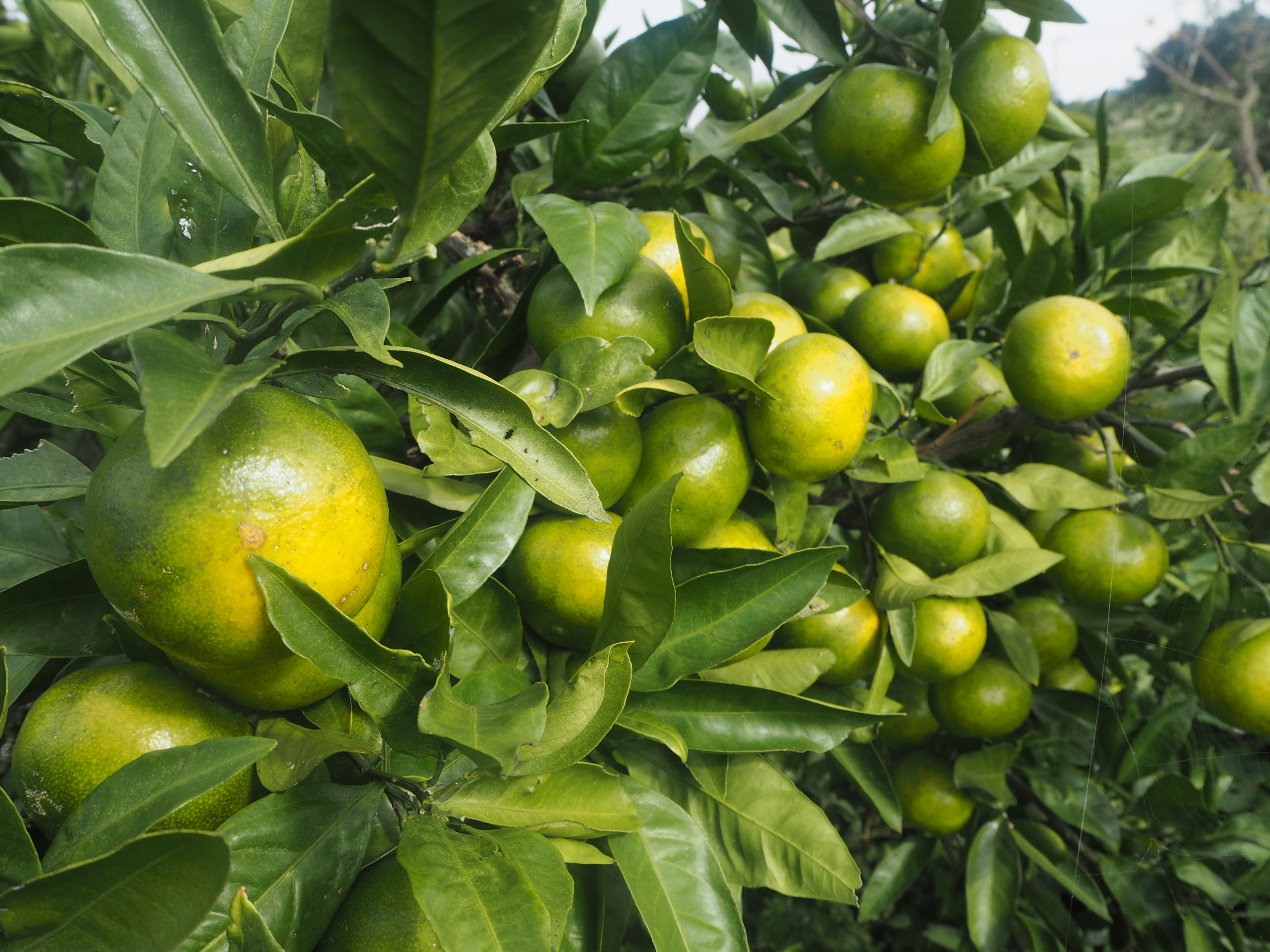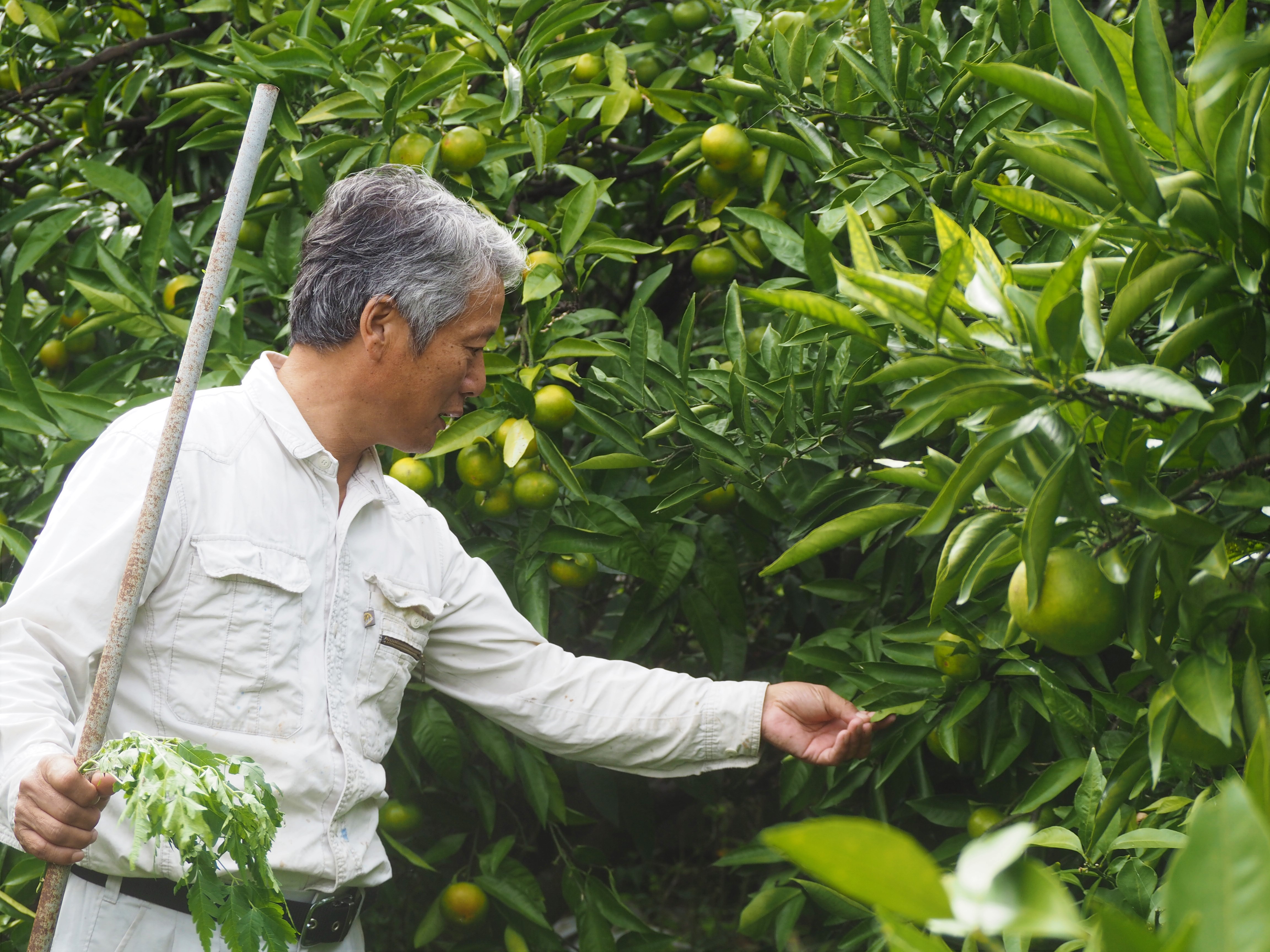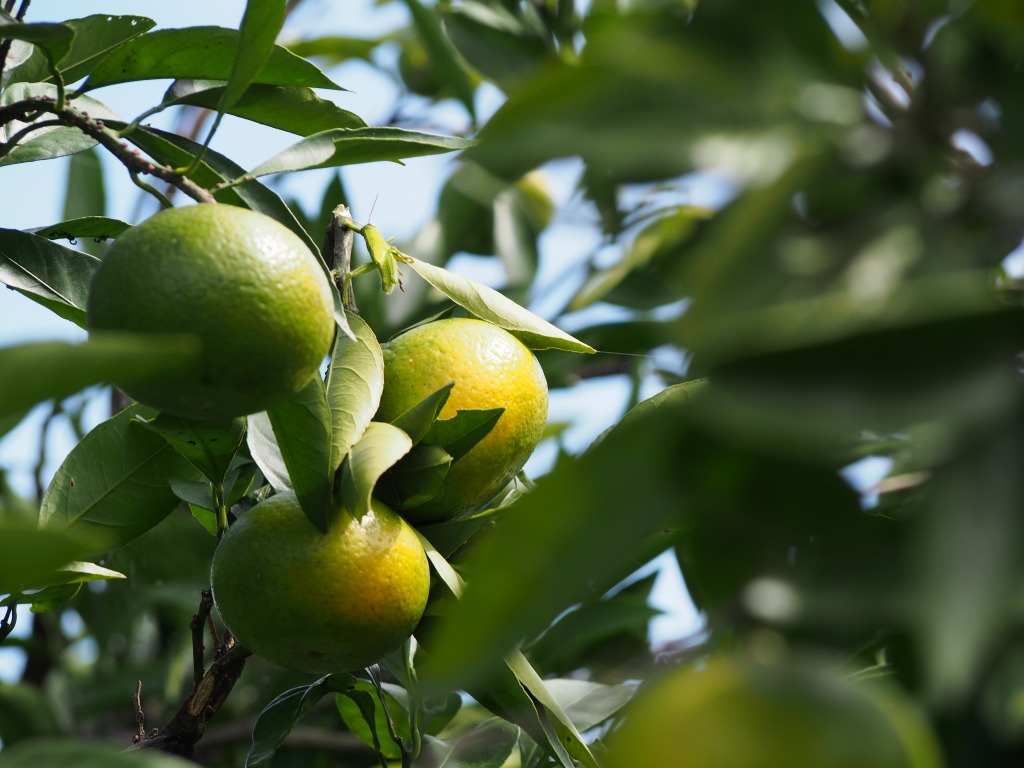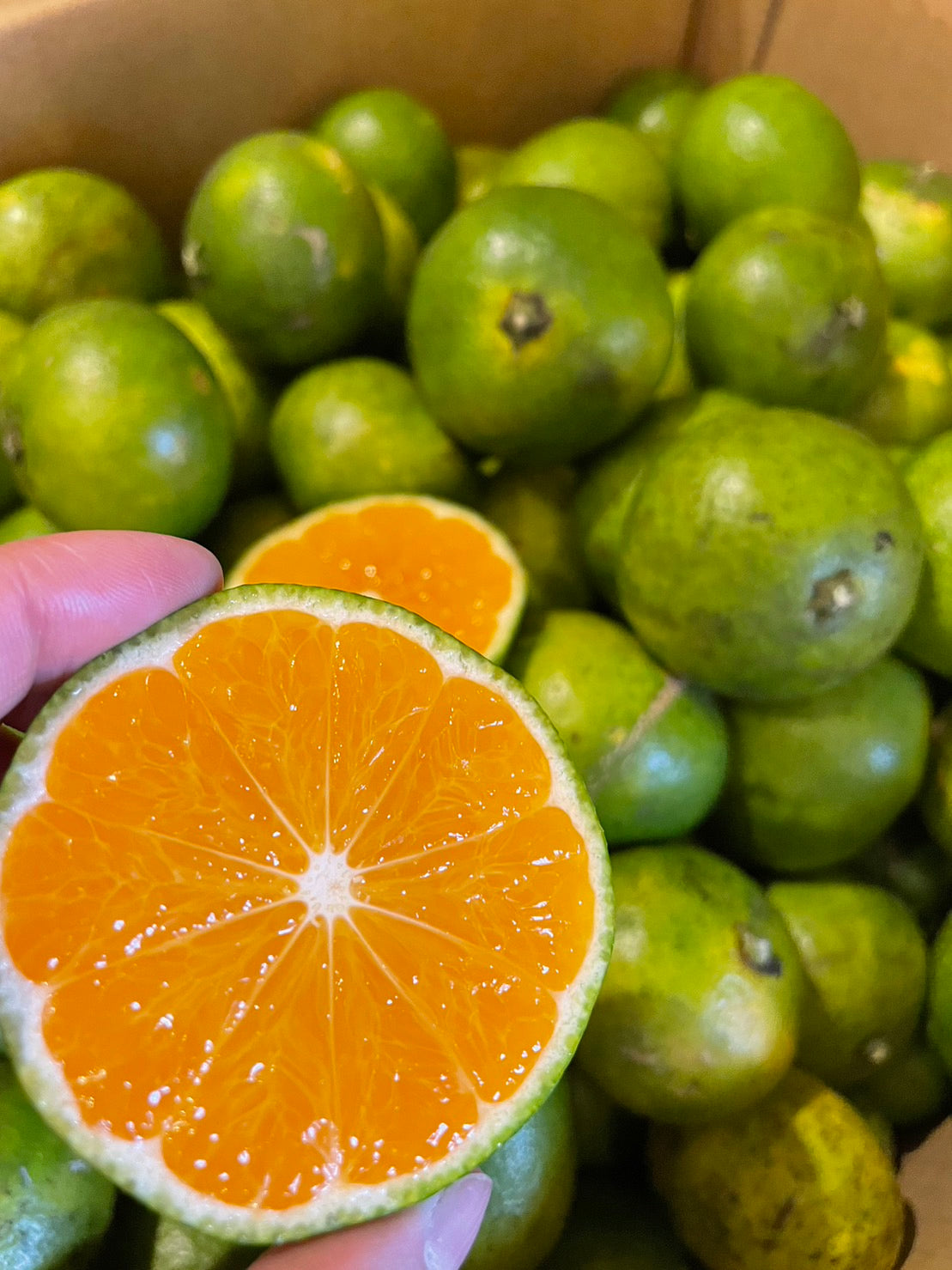〈 Tamatocho, Tamana City, Kumamoto Prefecture 〉 Michiaki Ikeda
[Only a few left] Naturally grown early-ripening mandarin oranges (by Ikeda)
[Only a few left] Naturally grown early-ripening mandarin oranges (by Ikeda)
Couldn't load pickup availability
Ikeda-san's naturally grown mandarin oranges (Ikeda-san) are on sale!!
*As the harvest is coming to an end, there may be some variation in appearance and size. Also, this product is second-class. Thank you for your understanding.
Ikeda-san's naturally grown mandarin oranges, which have been on hiatus, are now back on sale as an early-ripening variety! They are sweeter than the very early varieties.
This is a limited time offer and quantities are limited. Due to popularity, please order early!
Naturally grown mandarin oranges from Ikeda, Kumamoto Prefecture
Michiaki Ikeda is engaged in natural farming in Gyokuto Town, Kumamoto Prefecture. Gyokuto Town, located in the northern part of Kumamoto Prefecture, is a town famous for its mandarin oranges. Since 2008, Ikeda has been gradually switching his mandarin orange farm, which has been passed down for generations, to natural farming.
Since 2015, he has switched his entire farm to natural cultivation, and this feat has earned him great fame nationwide. Fruit trees usually use much more pesticides and fertilizers than vegetables. It is said that mandarin oranges are sprayed more than 40 times before being harvested. Mr. Ikeda has continued to grow his oranges naturally without the use of pesticides or fertilizers, overcoming repeated trials such as disease and insect pests, because he wants to "produce delicious mandarin oranges that even children can eat safely."  Ikeda Michiaki is a pioneer of natural cultivation of Unshu mandarins. He is a friendly producer. Weeds grow under the mandarin orange trees in Ikeda's mandarin orange field. The natural "grass mulch" that covers the grass under the trees is said to prevent direct sunlight and prevent the ground temperature from rising too quickly.
Ikeda Michiaki is a pioneer of natural cultivation of Unshu mandarins. He is a friendly producer. Weeds grow under the mandarin orange trees in Ikeda's mandarin orange field. The natural "grass mulch" that covers the grass under the trees is said to prevent direct sunlight and prevent the ground temperature from rising too quickly.
Ikeda-san is well versed in the names of insects and plants, and even explained the names of the weeds one by one to us. Among them, there are many vines, which are very important to us. "The vines help to suppress other weeds. Also, the more vines there are, the healthier the tangerine trees become. Not cutting the weeds helps to keep them in check," he said.
He stopped mowing about 10 years ago, and instead of cutting the weeds, he allowed the plants to live and feed on the soil, which led to a greater diversity of bacteria and living organisms, improving the condition of the soil, and making the mandarin orange trees healthier and more resistant to insects, diseases, and climate change. In fact, he says that the yield and quality of the mandarin oranges are improving year by year. In recent years, the quality of both early and late mandarin oranges has changed so much that they are comparable to those grown in general cultivation.
"It took more than 10 years to get to this point. At one point, the entire tree was killed by insects," he said. Naturally grown mandarins grow slowly and carefully. This results in dense fruit with a rich flavor. They have a good balance of sweetness, sourness and umami, and are so delicious that you'll find yourself reaching for two or three, something you won't find anywhere else.
We deliver mandarin oranges that have been grown with great care and effort. Of course, they are grown without fertilizer or pesticides, so you can eat the skin as well. 
 Mr. Ikeda and his naturally grown mandarin orange trees. He treats them with love every day.
Mr. Ikeda and his naturally grown mandarin orange trees. He treats them with love every day.
Naturally grown mandarin oranges, grown with care, attention, and love
In addition to scale insects, there is also a type of insect called long-horned beetle that burrows deep into the trunks of fruit trees and causes the trees to wither. To deal with this, they have been walking around the orchard almost every day, steadily removing any larvae they find. They have also struggled with weeds such as vetch that wrap around the trees and weaken them.
In normal mandarin orange cultivation, insects are eradicated with pesticides, weeds are killed with herbicides, and chemical fertilizers are generously used to fatten the mandarin oranges. However, Ikeda cultivates his trees naturally without pesticides or fertilizers, so he cuts the grass every day or knocks it down with iron pipes to prevent the weeds from growing vigorously, and steadily removes insects by hand to nurture his mandarin orange trees. "January to March is pruning season, and from April to July we live with the grass," he said with a laugh. "Whenever I have free time, I come to the mandarin orange orchard. I put in the effort, the attention, and the love I give to the trees.
However, I've decided that when I'm not working, I won't do it, and I try to balance things by going fishing or painting." Along with his deep affection for his mandarin orange trees, I could also sense Ikeda's own philosophy of living a happy life, which is to "play when it's time to play."
Naturally grown mandarins with an exquisite balance of refreshing acidity and natural sweetness.  During our visit to the production area, we were given some freshly picked, naturally grown mandarin oranges to slice up. All of our staff were impressed by how delicious they were.
During our visit to the production area, we were given some freshly picked, naturally grown mandarin oranges to slice up. All of our staff were impressed by how delicious they were.  "We've produced delicious naturally grown mandarin oranges again this year." We're looking forward to the peak season coming up.
"We've produced delicious naturally grown mandarin oranges again this year." We're looking forward to the peak season coming up.
Varieties
Varieties
Producer
Producer
Michiaki Ikeda
Producing area
Producing area
Tamatocho, Tamana City, Kumamoto Prefecture
Farming method
Farming method
Natural cultivation
Species Information
Species Information
Fruit trees
Size and Capacity
Size and Capacity
1kg, 5kg, 10kg




